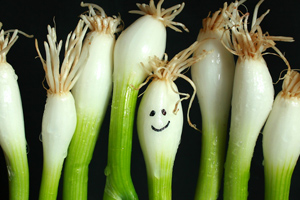9 Green Tips for Dummies
When the whole organic craze first stuck its ugly head out, I was so not impressed. My sister and her hippy soul mate were really getting into this and it I thought it’s just another fad, soon to blow over. A while ago I watched an Oprah show and organic farming and it triggered something… my conscience. I don’t claim to have any answers (yet) or to be extremely informed about terms like “free range” and “organic farming” but what I do know is that I need to sleep peacefully at night. I decided to slowly and yes, sceptically gain more knowledge about this so that I can make better choices when buying food.
I’ve come home with my plastic bags of shopping a couple of times, deeply disappointed in myself for not being able to find free range meat (or about the fact that I totally forgot about the Cause when I saw the cheese griller sausages!) which immediately send my conscience into overdrive. Doing the right thing all the time can be overwhelming, but I’ve come to realise that it’s not about beating myself up when I make a boo-boo, but about being aware as awareness brings responsibility. Baby steps.
As far as I understand, it’s about eating products as close as possible to its natural form – no interference – without added chemicals, pesticides and other bad stuff that I’m still in the process of figuring out. Organic produce puts less CO2 into the atmosphere than normal food production. Uhm, yes. That’s my understanding thus far.
Green Tips
- Buy organic / free range whenever you can. Keep on requesting these products if you can’t find them at your local supermarket (which is the case with me, it will perhaps also help if I know exactly what I’m looking for).
- Grow your own organic veggies. I have found a couple of organic workshops in our area, it’s a great hobby and will get me outside and off the couch.
- Visit a farmers market and support the local organic farmers. Their prices are quite fair.
- Going green does make your budget suffer a bit, but I think it’s manageable if we purchase wisely and perhaps buy less food (we often waste a lot of food or don’t use everything we buy).
- It’s ethical to pay producers fairly (no bargaining? – to be honest, I haven’t thought of this up to now, I was still trying to figure out the labels).
- Support local producers where possible. Shop consciously; we are to reduce the food miles (the distance from “plough to plate”), which will reduce CO2 emissions. If we want to get into this we shouldn’t buy imported products as it means more transporting, which is bad for the environment.
- Buy an eco-friendly car.
- Go vegan (okay, I admit this is a bit extreme). Replace your meat with free range chicken or if that’s a bitter pill to swallow, cut down on the amount of times you eat meat every week. Cutting down on meat will not only benefit the environment but will benefit your health as well.
- Read and understand the product label before you purchase something.
This is all I’ve got for now. Experience and New Year’s resolutions have taught me that it’s not possible to change everything at once; I need to incorporate one new lifestyle change at a time. I’m definitely going somewhere slowly.




